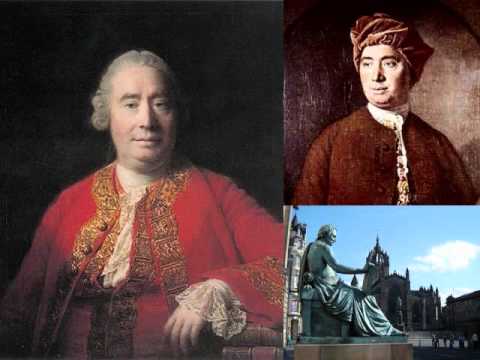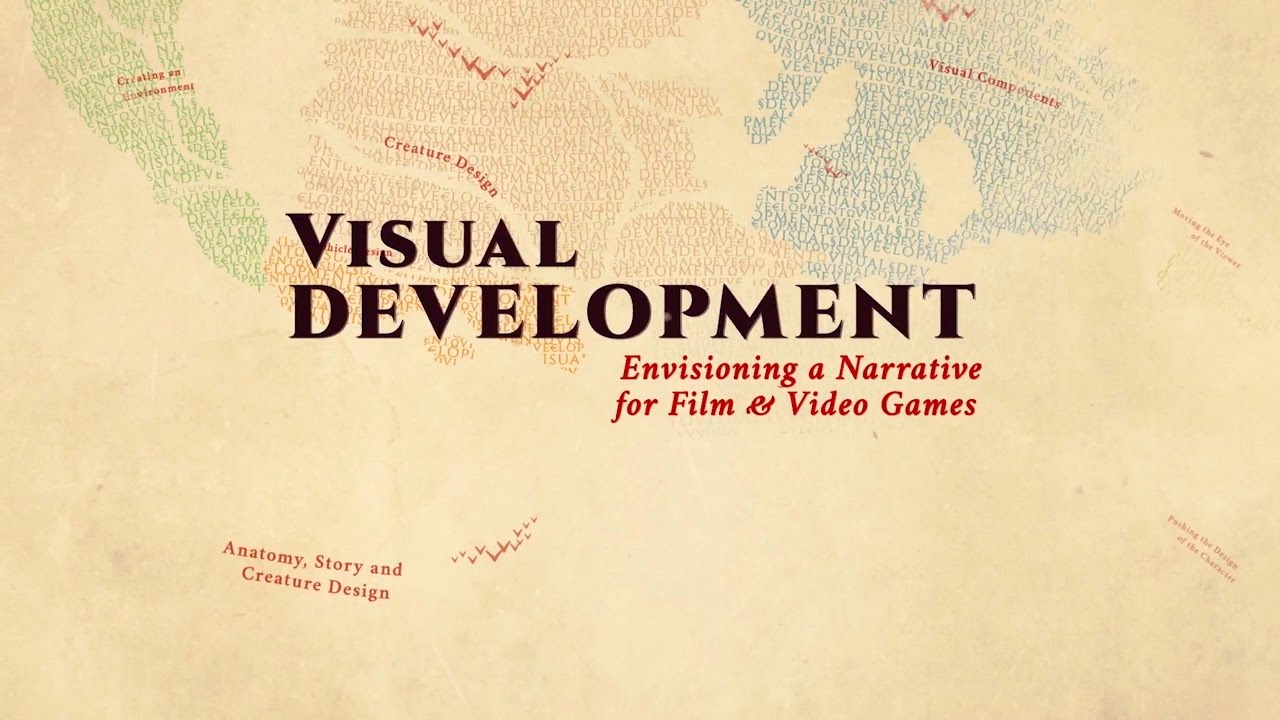http://www.philosophybites.com/
Philo is the hard-headed skeptic who sees paradoxes and inconsistencies in every line of argument, sees alternate interpretations for every observation, and who thus essentially believes nothing can be known for certain. His arguments are most nearly those of the modern skeptic. Hume at times lets him go over the top and express extreme ideas, which are then tempered a bit for the sake of more sensitive readers.
Cleanthes is the pragmatic skeptic, who is keenly aware of the limitations of logic and observation but who nevertheless believes our mental picture of sense impressions and logical inferences is too real to dismiss entirely. It is Cleanthes who articulates the Argument From Design.
“Hume is our Politics, Hume is our Trade, Hume is our Philosophy, Hume is our Religion.” This statement by nineteenth century philosopher James Hutchison Stirling reflects the unique position in intellectual thought held by Scottish philosopher David Hume. Part of Hume’s fame and importance owes to his boldly skeptical approach to a range of philosophical subjects. In epistemology, he questioned common notions of personal identity, and argued that there is no permanent “self” that continues over time. He dismissed standard accounts of causality and argued that our conceptions of cause-effect relations are grounded in habits of thinking, rather than in the perception of causal forces in the external world itself. He defended the skeptical position that human reason is inherently contradictory, and it is only through naturally-instilled beliefs that we can navigate our way through common life. In the philosophy of religion, he argued that it is unreasonable to believe testimonies of alleged miraculous events, and he hints, accordingly, that we should reject religions that are founded on miracle testimonies. Against the common belief of the time that God’s existence could be proven through a design or causal argument, Hume offered compelling criticisms of standard theistic proofs. He also advanced theories on the origin of popular religious beliefs, grounding such notions in human psychology rather than in rational argument or divine revelation. The larger aim of his critique was to disentangle philosophy from religion and thus allow philosophy to pursue its own ends without rational over-extension or psychological corruption. In moral theory, against the common view that God plays an important role in the creation and reinforcement of moral values, he offered one of the first purely secular moral theories, which grounded morality in the pleasing and useful consequences that result from our actions. He introduced the term “utility” into our moral vocabulary, and his theory is the immediate forerunner to the classic utilitarian views of Jeremy Bentham and John Stuart Mill. He is famous for the position that we cannot derive ought from is; the view that statements of moral obligation cannot simply be deduced from statements of fact. Some see Hume as an early proponent of the emotivist metaethical view that moral judgments principally express our feelings. He also made important contributions to aesthetic theory with his view that there is a uniform standard of taste within human nature, in political theory with his critique of social contractarianism, and economic theory with his anti-mercantilist views. As a philosophical historian, he defended the conservative view that British governments are best run through a strong monarchy.
pangeaprogressredux
Source




I'm currently reading Bertrand Russell's book The History of Western Philosophy. Thanks for this video, it gave me a better understanding of what I just read.
@Ryan44567 Good to hear that. I would also suggest Will Durant's "The Story of Philosophy" I thought it was a rather good read. Broad of course but some interesting insights.
I am a Christian however I know that the ontological argument, cosmological argument,and the intelligent design argument does not prove the existence of the Christian God necessarily, but nevertheless proves a Deistic God at the bare minimum if they are sound. I see them as a foundation for further exploration.
You have just helped me unbelievably with my Western Philosophy module! 🙂 thanks
The arguments can only be used to argue for a deistic god if one agrees on the axioms of a formal logical system, that those axioms are self-evident, and that the world functions according to a set of formal and rational rules. However, there is no evidence that the world follows such sets of rules. There are philosophers who treat such skepticism as implausible, but obviously they have no reason to do so. Rationalism can be used to prove anything as long as you find the right set of axioms.
You clearly did not understand my comment, I recommend reading it again.
I recommend you explain it better if I didn't understand it.
Logical systems (even natural language) is based on axioms that we take to be self-evident, but there is no reason for us to make this assumption. Gödel and Tarski have shown that all but the simplest axiomatic systems are inconsistent and they make claims that are impossible to prove (not even undecidable). Hence, you cannot prove anything using mere logic, there must be observation for any description to be true. I don't accept that axioms are self-evident so there is no proof to begin with.
Russell is great, his reading of Western philosophy is filled with witty remarks, great observations, and overall a good sensibility. Best book by a single author on the subject, you have found a gem!
The debate between naturalistic philosophy and rationalism is still waging as hot as ever, no side has proved which is right, thus the ruling for that is still for the taking. Even if rationalism cannot prove things I have formulated my own argument that does prove the existence of God on the basis of observation.
There are also other arguments that proves the existence of God based on observation, such as the argument from morality. My argument is called the argument from energy, can you guess how that argument might look like?
I can also make any claim and prove anything using rationality. Sure, empiricism hasn't been "proven," that's impossible, but you will find that every single scientists (whether she likes it or not) is an empiricist.
I have seen light in the north of Norway that can't be natural, so aliens from another galaxy must make it in order to tell us that an all-loving elf is about to save us. See, I proved something rationally based on observation.
And note to self, rationalism doesn't use observation.
There is no debate between rationalism and empiricism in the sciences, there used to be, but there is none anymore. It is only a debate among certain philosophers, mostly in the philosophy of religion, which is a pseudo-philosophical branch anyway. But all rationalists, even the most ardent, base some of their thinking on observation. And in practice all the axioms of any rationalist system is based on observation, a good book on this is "the embodied mind."
Rationalisms biggest flaw, which is a major flaw, is that it is based on axioms it cannot prove rationally, they are taken as self-evident. I see no reason to accept such speculative thinking about the world. There are mathematical systems with infinite dimensions proven to be consistent, does that say anything about the world? I don't think so, but I could from that system say that the world must have infinite dimensions, since I have a consistent system that has infinite dimensions.
I'm sorry but after your so called "proof of elves" with rationalism, listening to you lecture about rationalism is like listening to a creationist lecture about evolution.
Well now you know how it feels like having a conversation with a theist.
I try to put myself in the atheist's point of view, watching Ancient Aliens on History channel helps with that.
I love how Hume, as described in this video, thinks not seeing any evidence for a fairies is tennable yet saying you dont believe in the fairies is "Dogmatic"….hmmmm?
"Of course there is no evidence, of course you shouldnt take things on faith thats why anyone who doesnt think fairies exist is dogmatic" – say whaaaat?
@nazra7 I recently had a chat with a very intelligent person at work who was a christian and said that he see's design everywhere thats why he thinks god exists……he literally cannot tell the difference between something that is designed and something that looks designed. Every pile of sand he looks at is like "Wow what a design" every case of cot death "Designed!"
I asked if he could identify something that wasnt designed……he couldnt, its all designed apparently
@shandcunt Hume says that you cannot go so far to say there is no god based on lack of evidence in the same way he attacked the idea of Causation. You cannot infer from experience, shit, one day there may be a piece of evidence that helps prove the existence of a god or gods. I doubt it but who knows really. As well, just like all silence, one experiment may destroy any theory. It is in the realm of possibilities. @astroboomboy to argue that rationalism is a tautology and then claim you c
Wow this debate is so much more civilised than most other debates one sees on YouTube, I't
Darn, I meant to say it's so refreshing to not see a whole page of 'mom jokes' and other immature jokes of the sort. It actually has a lot of intellectual backing and is rewarding to read, I must admit I enjoyed it a lot
WHERE ELSE CAN ONE DERIVE AN OUGHT BUT FROM AN IS??
9:20 – did I just hear the foreshadowing of evolution by natural selection?
Oops, more like 9:18
This is actually a brilliant summary of Hume's response to Paley's Design Argument!
I'd give my right arm to talk to Hume over any YouTube Atheist, any day. Actually, I'd probably just give my right arm to talk to Hume.